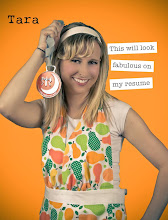Just curious if you all monitor your heart rates, just judge your fatigue by how you feel, or what? Any tips?
Friday, August 20, 2010
Heart Rates
K, so I've decided I need to clean the slate and see if I can get my HR lower when I run, so I'm trying a 13 week walk-run program. So even though it feels easy--feels like I am forcing myself to walk rather than run--my HR remains 85% - 95% when I run. Is this too high? My RHR is 60 and the max I've ever gotten my HR is 197 (I know that this is way higher than the method of 220-age, but I've worn a HR monitor for years and I'm certain it's this high). According to things I've read, I should be working out at lower HR. So what do I do-stop running? Should I ignore the whole heart rate thing? I feel like my HR is what is holding me back, my muscles and all feel fine. But I do feel like I'm dying every time I run which is perfectly normal for me :)
Subscribe to:
Post Comments (Atom)
















Ohmygosh! I think I've told you this before, but heart-rate training has CHANGE.MY.LIFE! This has made the biggest difference in my running... building a bigger "base" and being able to do more in lower HR zones -- that's what builds endurance.
ReplyDeleteI was actually re-tested at my gym this morning (I've done it every 3 months this year and it's AMAZING to compare the results and see on paper how far I've come). I was put-out with the expense as first, but really - it has paid-off incredibly in my overall fitness and endurance. Having workouts specific to me and my zones is awesome because this really is super individual and I literally can't do the things that some other ladies we know can (yet!), but I'm getting there.
You do not need to stop running. I will try and dig out my old workouts from when I first started my cardio-conditioning program... it definitely started out power-walking and slowly added in jogging, and then eventually added in running intervals.
Let's talk!
Amy,
ReplyDeleteLike Susan, I use to be a total HR training advocate but even weeks before running camp I stopped using my HR monitor because it was annoying me. Even at Lifetime I spoke to everyone and their dog about the HR thing because in my own research there was a lot of conflicting info. At running camp one of the discussions was different training methods and the HR method was talked about.
In short Coach Dean (PhD), Professional running coach, and expert runner gives an eye roll followed by a two thumbs down for the HR training method. Here is what he thinks and the science behind what he thinks. Check it out here:
http://coachdeanhebert.wordpress.com/2008/03/25/do-long-miles-at-low-heart-rate-build-a-better-engine/
He thinks the VO2 max-base miles- (what they sell you at Lifetime) is a total waste. Funny how they sell this yet Scott, Emily (heros) of Lifetime don't follow this method. Just ask Scott if he "builds his base"--no he doesn't.
Knowing your resting HR can be helpful because as you become more conditioned your resting HR will get lower and then you when you are running etc. your overall HR will be lower but "training" at a specific HR according to Coach Dean (backed by research) doesn't help you become a better runner. Wouldn't I have like to know this years ago.
In my "study of one" (myself) I was not getting faster with the HR thing but following Coach Dean's training plan for just a few short weeks I've already knocked off 30 seconds from my mile time and I'm running A LOT less miles for week. It's really nice.
Anyway, good luck with whatever you decide. If you like I can email you more info of what I learned just let me know. Check out Coach Dean's site though he has a lot of helpful running info including proven training methods.
Adrienne
Amy, I am just like you. I've always had a very high heart rate. Susan I'd love to see your workout schedule and talk to you about them.
ReplyDeleteKristen H.
OK Adrienne, I didn't see you post until I posted my last one. I'd love to hear more. Kristen
ReplyDeleteEverybody's so different, and personally, I see a direct correlation between heart rate and how I feel and what I can accomplish. Of course, my goals haven't (yet) been about speed, just general fitness and endurance. And I have nothing to credit my success with except what I've been doing -- which is HR training.
ReplyDeleteI think the bottom line is that if what you're doing isn't working -- then try something new. And there are lots of something's new to try.
I remeber Tara telling me about a walk-run program she knows about, too -- check with her also. Don't get discouraged -- you can do it!
Good luck! :)
My goal is endurance right now. I'd like to be able to run--no matter how slow--longer without having a cardiac emergency. Speed is TOTALLY secondary, just want to keep jogging. I REALLY don't want to spend the money for the lifetime test...although it is tempting.
ReplyDeleteI've never paid attention to my HR. I started out breathing really hard with my heart racing, but I just ran and ran and little by little my body became accustomed to it. I don't really think it's that important to go with the HR method, unless you really want to. There are certainly other ways to build up your endurance without killing yourself. My suggestion- put in the miles! Start out with how many miles you can do without dying, then slowly build up. Also- run 4-5 days per week (even if you aren't running very many miles) because your body just needs to get used to running!
ReplyDeleteI know I'm getting a little picky here, but I just want to clarify that what coach Dean is talking about in that article Adrienne posted above is not the same thing or the same program that Lifetime does. There is a HR method out there where you keep your HR low on purpose in order to stay in the "fat-burning zone" And you keep it low all the time. That is not an effective way to lose weight or get faster. It might be ok for building endurance, but not great. I believe this is the kind of HR training that was in the question in the article. What Coach dean said to do was improve your lactate threshold, which is just another word for anaerobic threshold, or AT--a term us Lifetimers know well. This is what the Lifetime test is all about. There is a "base building" segment--and if you are really deconditioned, this can be helpful. But not once you are in decent shape. After that the focus is on improving your AT. I'm not advocating that you spend $100+ dollars on the test, just wanted to clarify that there are many different kinds of heart rate training. I personally don't do it, but I don't think it's wrong. BUT--you need to have accurate testing in order for it to even have a chance at working.
ReplyDeleteAnd coach Dean is absolutely right about one thing--you don't have to run millions of miles to be a good runner or to get better. What you do have to do is run with a purpose. If every time you go out and run you have a goal or a purpose behind it, you will find yourself improving much more quickly, regardless of how many miles you are putting in.
I am excited to poke around Coach Dean's website more. Looks like there is a lot of great info there.
wow--that was a NOVEL. Sorry :)
ReplyDeleteThis comment has been removed by the author.
ReplyDelete